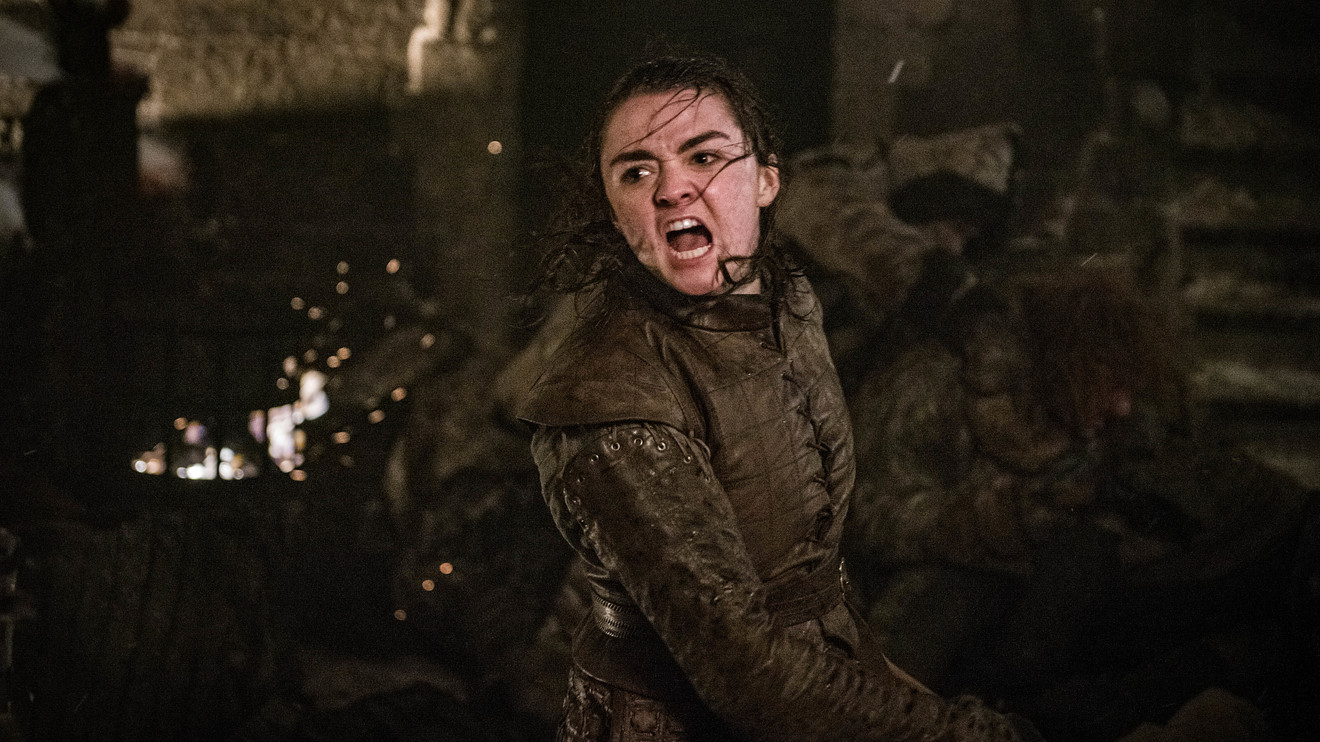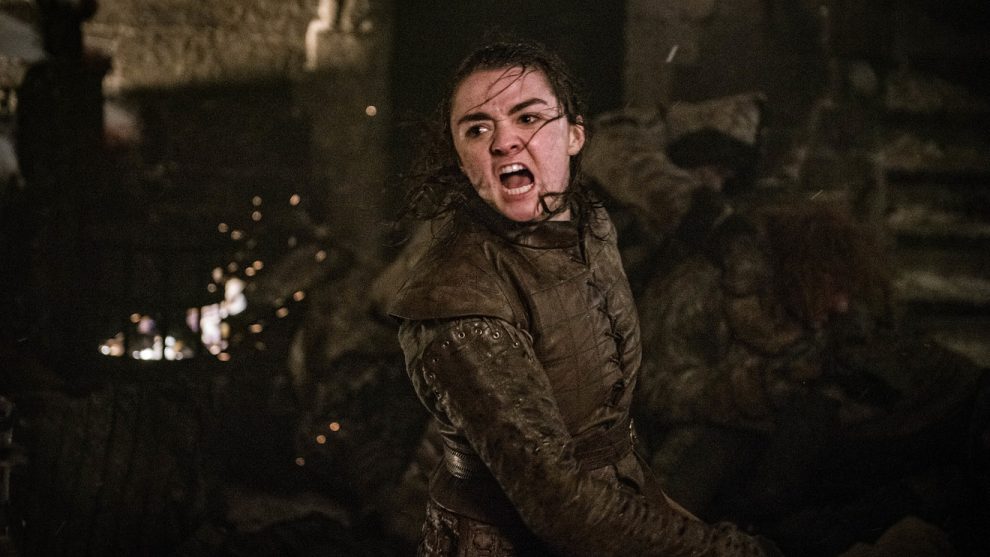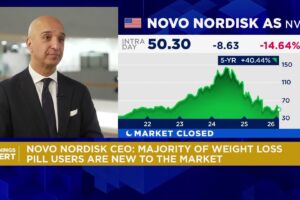
No, the final season of “Game of Thrones” wasn’t a disappointment.
It was an insult.
This fiasco was, of course, an insult to the tens of millions of fans who had invested so much time and energy in this series over eight extraordinary years.
But in a more tangible sense, it was also an insult to the many more who own stock in HBO’s parent company, AT&T T, +1.23% If you have money in a regular U.S. index fund, that includes you.
AT&T’s management has just needlessly thrown away a prize asset for no good reason whatsoever. Imagine the Empire State Realty Trust ESRT, -1.08% knocking down the Empire State Building “before people get tired of it.” Or Tiffany TIF, -0.66% canceling its line of engagement rings to “move on.”
This was like setting fire to a pile of money. Your money.
Laziness? Incompetence? Stupidity? You make the call. This must be the dumbest move since Coca-Cola’s KO, -0.71% New Coke.
HBO now says it’s working on new programs based on “Game of Thrones.” Well, good luck. But those will be a poor replacement, even if they materialize.
The company wouldn’t need a replacement if it continued the original show. And the question now is whether the franchise has much magic left anyway.
The final season was a disaster. Talk about blowing an opportunity. Never have so many exciting characters met such boring deaths. Never have so many brilliant possibilities been thrown away. Never has so much time, money and talent been wasted mailing something in.
It took them two years to make this?
How fitting that someone accidentally left a Starbucks coffee cup in one scene and a couple of water bottles in another. Did anyone actually watch this thing before broadcasting?
A few diehard fans are defending how the series ended. But almost no one is praising it.
Class-action lawsuit?
The only question that remains now is whether some enterprising limo-chasing lawyer is going to file a class-action suit against the company on behalf of the stockholders.
Don’t rule it out.
Stephenson specifically cited the value of “Game Of Thrones” when he announced his company’s massive $85 billion takeover of HBO’s parent company, Time Warner, in 2016.
The takeover deal would be a “game-changer” for AT&T because of Time Warner’s “marquee businesses, including HBO,” and “blockbuster shows like ‘Game of Thrones,’ ” he wrote to all of AT&T’s employees at the time.
Instead, after completing the takeover last year, he ran the “blockbuster series” for just six more episodes — each more ludicrous than the last.
For those of you who have never watched it, “Game of Thrones” was “Lord of the Rings” crossed with “Peyton Place.” It was a magical, medieval-style fantasy epic, intertwined with enough shenanigans, plot twists, betrayals and downright depravity to make a Borgia blush. It also included some of the most brilliant world-building ever seen, either on TV or in a movie.
Cutting it short
If you’re a stockholder, it doesn’t matter if you watched the program. What matters was that it was wildly successful, and there was no reason to end it. “Game of Thrones” could have run and run for years without becoming dull. Even the creator, author George R.R. Martin, ended up overwhelmed by all the possibilities.
The official and semi-official explanations for ending the series were that the producers and actors wanted to move on to other projects, and that Martin himself was running out of ideas. Defenders of the move also said HBO was somehow smart to make sure the program didn’t “go on too long.”
Phooey.
Even a straightforward hospital drama like “Grey’s Anatomy” can keep going strong into 15 seasons. Some soaps successfully run for decades.
TV critics may like the idea of ending series early, leaving fans hungry for more. But HBO doesn’t work for the critics. It works for the stockholders who put up the money. As they say on Broadway, “It’s not ‘show friends.’ It’s show business.”
Companies are not supposed to shut down operations when they are successful and profitable. And as any Wall Street trader can tell you, you should let your winners run, and close down your losers — not the other way around.
And there was no sign of “Thrones” fans getting bored.
Viewership had risen in the previous two seasons from an average of 26 million per episode to 33 million. Those are extraordinary numbers, especially for cable TV. And the season that just ended is set to shatter all records when the final numbers are in. The first episode alone hit 38 million.
Imagine the enormous amount of money, time and skill you’d have to invest to build up something this big from scratch. And the amount of luck you’d need.
Veritable gold mine
This was potentially one of the most valuable franchises in entertainment history. The series should have been kept running, or at worst sold to another company. You think no one would have bought this? The merchandising rights alone are worth a fortune.
Meanwhile, HBO was getting about $15 a month per direct online subscriber. How many of those will now cancel?
Record viewership for the final season may sound like a “win” for HBO and AT&T, and that’s probably how they’ll spin it. But it wasn’t a win. People tuned in this season to see the conclusion of a brilliant and complex melodrama that had been running since 2011. If you’d watched the previous seasons, you really had to watch the ending.
So the viewership figures this time around aren’t a testimony to the final season. They’re a testimony to the previous seven. And, more importantly, they’re a sign of what might have been.
This is not an abstract point. If you have money in U.S. stock funds, chances are you have money invested in AT&T. And that’s certain if you invest in index funds such as the SPDR S&P 500 ETF Trust SPY, -0.66% or Vanguard Total Stock Market ETF VTI, -0.71% The biggest holders of this stock include Vanguard and iShares parent BlackRock BLK, -0.79% So this was your money. Maybe in the grand scheme of things it’s not an enormous amount. But money is still money.
Number-crunchers at Trefis, an equity-research company, estimate that HBO’s Time Warner entertainment division accounts for about 23% of the value of AT&T’s stock.
Meanwhile, AT&T has underperformed the broader S&P 500 by a remarkable 30% since the 2016 takeover. It’s underperformed the communications sector by 13%. It’s underperformed Verizon VZ, +1.58% by 28%, Disney DIS, -0.84% by 34% and Netflix NFLX, -1.79% by 64%.
Some game-changer.
During the same period, Stephenson has been paid an average of $24 million a year. But then, the “Game of Thrones” in corporate America is a lot cushier than the one on TV.
Brett Arends is a MarketWatch columnist.







